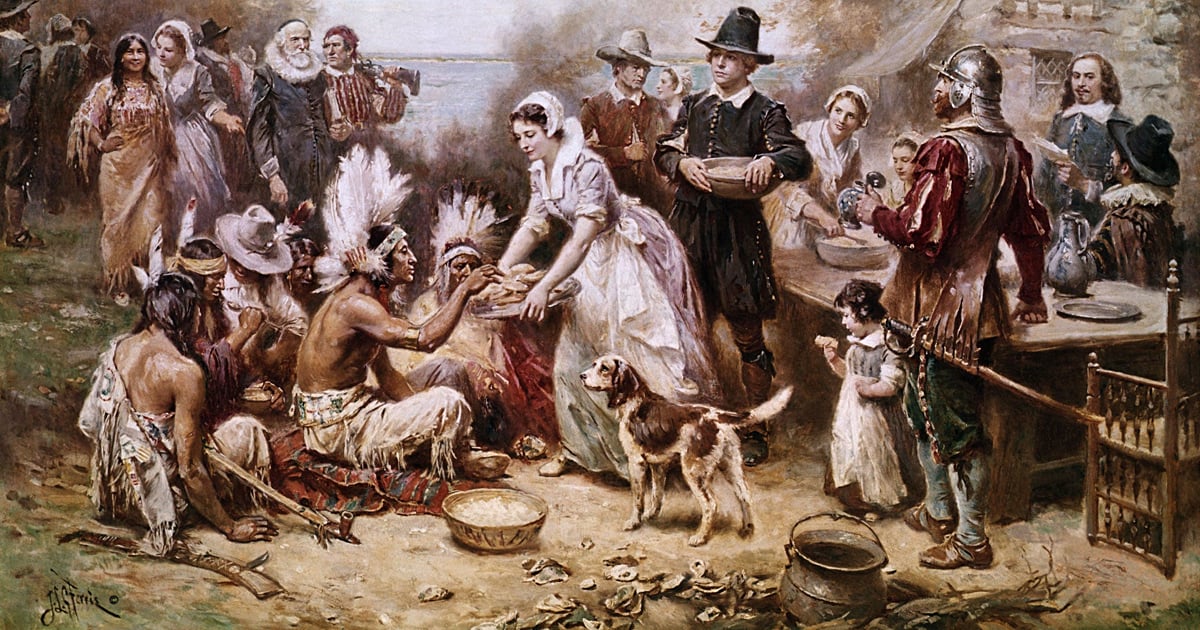
Nov 25, 2025 4:28:14 PM
Thanksgiving is upon us—in the air, in the trees, in the longer nights, and anticipation of a long weekend. But also in the grocery stores and in our schools. Thanksgiving has been distilled into a hardly visible holiday in schools, one that rarely drives curricular instruction. And yet, when we do mention it, it is almost entirely the mythology that we teach.
Particularly in pre-school and elementary school, we discuss Thanksgiving (the myth), and our learning lasts a lifetime. Ask any adult what Thanksgiving is about, and most people will recite the myth that they learned as a young child: Thanksgiving is a holiday based on the myth that once upon a time, the Native Americans and the Pilgrims celebrated a peaceful meal together.
In this mythology, we call Native people “Native Americans” in spite of the fact that at that time in history, most Native people considered their own existence to be directly challenged by American-ness. We call Pilgrims “Pilgrims,” rather than colonists or colonizers. But the biggest omission of this holiday is that there is evidence that the peace meal we celebrate and replicate never actually happened at all.
This year, as Thanksgiving rolls around, consider setting the record straight.
Even as the topic of Thanksgiving may occupy very little of your attention in class—or at home— let the time it does take be dedicated to correcting the myths, rather than reinforcing them.
This post was originally published on November 22, 2019.
Ali Michael, Ph.D., is the co-founder and director of the Race Institute for K-12 Educators, and the author of " Raising Race Questions: Whiteness, Inquiry and Education " (Teachers College Press, 2015), winner of the 2017 Society of Professors of Education Outstanding Book Award. She is co-editor of the bestselling " Everyday White People Confront Racial and Social Injustice: 15 Stories"(2015, Stylus Press) and " The Guide for White Women who Teach Black Boys" (2018, Corwin Press). Ali also sits on the editorial board of the journal " Whiteness and Education." Ali teaches in the Diversity and Inclusion Program at Princeton University as well as the Equity Summits with USC. Ali’s article, " What do White Children Need to Know About Race?," co-authored with Dr. Eleonora Bartoli in Independent Schools Magazine, won the Association and Media Publishing Gold Award for Best Feature Article in 2014. She may be best known for her November 9, 2016 piece " What Do We Tell the Children?" on the Huffington Post, where she is a regular contributor. For more details see www.alimichael.org.
Few issues in education spark more tension and debate than standardized testing. Are they a tool for equity or a burden on students? A necessary check on school systems or a flawed measure of...
Charter schools are public schools with a purpose. Operating independently from traditional school districts, they're tuition-free, open to all students, and publicly funded—but with more flexibility...
Despite the benefits of a diverse teaching force, prospective teachers of color fall out of our leaky preparation pipeline at every stage: preparation, hiring, induction, and retention. Here’s what...
Ed Post is the flagship website platform of brightbeam, a 501(c3) network of education activists and influencers demanding a better education and a brighter future for every child.
© 2020-2025 brightbeam. All rights reserved.
Leave a Comment